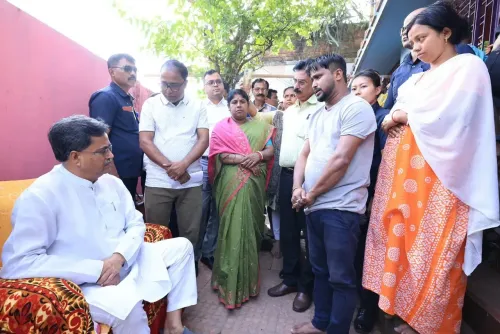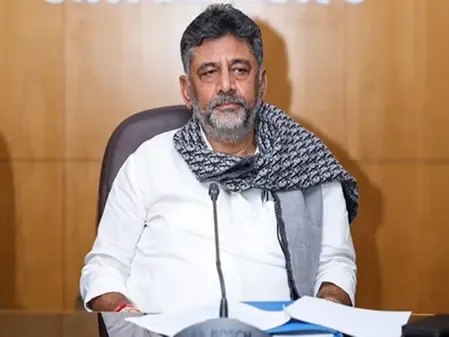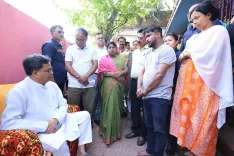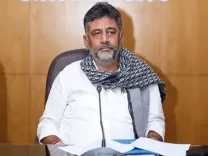Could Trump's Call to Halt Foreign Tech Hiring Open New Doors for India?

Synopsis
Key Takeaways
- IndiaAI Mission aims for homegrown tech solutions.
- Trump’s hiring call may spur self-reliance.
- India's digital infrastructure sets a global standard.
- Over 46% of the workforce relies on agriculture.
- India can nurture local talent to solve domestic problems.
New Delhi, Aug 10 (NationPress) US President Donald Trump’s recent appeal for American technology firms to cease hiring foreign talent could serve as a pivotal opportunity for India to transition from being the world's outsourced back office to achieving significant global technology leadership.
The Indian government is already taking decisive steps forward. The IndiaAI Mission, initiated in 2024, is explicitly dedicated to developing indigenous solutions in areas such as agriculture, healthcare, and language processing—fields that are vital to India's distinctive context and its vast populace. AI systems like Sarvam-1, tailored for Indian languages, embody ambitions that extend beyond simple adaptation of Western technologies. Enhancing computing infrastructure, investing in research, and increasing support for startups indicate that the technological engines are being prepared for a monumental transition, as noted in an article from India Narrative.
The article emphasizes the G20 Task Force report, which states that “India’s digital infrastructure, driven by Aadhaar and UPI, already sets a global standard.” It illustrates how scalable digital platforms designed to address Indian challenges now support everything from banking to vaccination logistics. The Aadhaar identity framework, 5G implementations, and efforts in financial inclusion have cultivated a fertile environment for innovation in areas often overlooked by Western technology behemoths.
While Trump’s hiring directive may be unsettling, it could provide the impetus India needs to focus on self-sufficiency rather than outsourcing. Developing homegrown AI solutions for agriculture could transform food security and climate resilience—particularly significant as over 46 percent of India’s workforce relies on farming, frequently facing pressures from unpredictable weather and low productivity. In healthcare, AI can help bridge gaps in diagnostics for rural communities, delivering essential solutions where expertise is limited, the article notes.
With its extensive digital user base—over 900 million internet connections—and advancements in payment systems, India exemplifies scalable public infrastructure. UPI, Aadhaar, and ONDC are not merely domestic achievements but also serve as international models, now being adopted globally. Indian SaaS and fintech unicorns, driven by local expertise, are rapidly emerging as global leaders, with exports surpassing $200 billion annually.
For many years, American tech firms have depended on Indian engineers for affordable, high-quality talent, channeling graduates from India's top institutions into positions in California, Washington, and New York. H-1B visas and offshore campuses established a pipeline that shaped careers while fueling India's software boom. However, as Trump’s rhetoric shifts American tech towards economic nationalism, Indian professionals face challenges previously thought unimaginable—jobs disappearing and aspirations postponed. Yet, reliance on Western opportunities has long limited India's tech ecosystem's potential for full self-expression.
Trump’s position dismantles this glass ceiling.
Indian engineers—producing 1.5 million graduates each year—are now prepared to innovate for India, not just for Western markets. Instead of merely exporting raw talent, the country has the chance to cultivate founders, inventors, and creators who address Indian challenges first. This serves as a wake-up call to invest in domestic innovation and entrepreneurial initiatives, the article further asserts.









